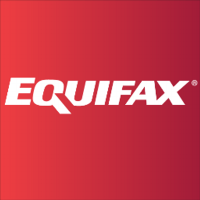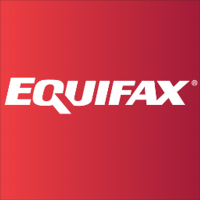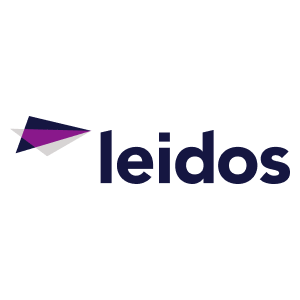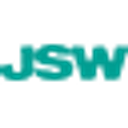
Equifax Inc
NYSE:EFX

Profitability Summary
Equifax Inc's profitability score is hidden . We take all the information about a company's profitability (such as its margins, capital efficiency, free cash flow generating ability, and more) and consolidate it into one single number - the profitability score. The higher the profitability score, the more profitable the company is.
Profitability Score
We take all the information about a company's profitability (such as its margins, capital efficiency, free cash flow generating ability, and more) and consolidate it into one single number - the profitability score. The higher the profitability score, the more profitable the company is.
We take all the information about a company's profitability (such as its margins, capital efficiency, free cash flow generating ability, and more) and consolidate it into one single number - the profitability score. The higher the profitability score, the more profitable the company is.
Profitability Score
Margins
Profit margins represent what percentage of sales has turned into profits. Simply put, the percentage figure indicates how many cents of profit the company has generated for each dollar of sale.
Profit margins help investors assess if a company's management is generating enough profit from its sales and whether operating costs and overhead costs are being contained.
Earnings Waterfall
Equifax Inc

|
Revenue
|
5.7B
USD
|
|
Cost of Revenue
|
-2.5B
USD
|
|
Gross Profit
|
3.2B
USD
|
|
Operating Expenses
|
-2.1B
USD
|
|
Operating Income
|
1.1B
USD
|
|
Other Expenses
|
-486m
USD
|
|
Net Income
|
604.1m
USD
|
Margins Comparison
Equifax Inc Competitors

| Country | Company | Market Cap |
Gross Margin |
Operating Margin |
Net Margin |
||
|---|---|---|---|---|---|---|---|
| US |

|
Equifax Inc
NYSE:EFX
|
26B USD |
56%
|
19%
|
11%
|
|
| UK |

|
Relx PLC
LSE:REL
|
70.8B GBP |
65%
|
30%
|
21%
|
|
| CA |

|
Thomson Reuters Corp
TSX:TRI
|
106.3B CAD |
0%
|
29%
|
30%
|
|
| UK |
I
|
IHS Markit Ltd
F:0M3
|
37.9B EUR |
63%
|
25%
|
26%
|
|
| US |

|
Verisk Analytics Inc
NASDAQ:VRSK
|
40B USD |
69%
|
44%
|
33%
|
|
| IE |

|
Experian PLC
LSE:EXPN
|
29.7B GBP |
0%
|
25%
|
16%
|
|
| NL |

|
Wolters Kluwer NV
AEX:WKL
|
33.6B EUR |
73%
|
25%
|
18%
|
|
| US |

|
CoStar Group Inc
NASDAQ:CSGP
|
29.7B USD |
80%
|
0%
|
5%
|
|
| CH |

|
SGS SA
SIX:SGSN
|
15.2B CHF |
94%
|
13%
|
9%
|
|
| US |

|
Leidos Holdings Inc
NYSE:LDOS
|
17.5B USD |
17%
|
11%
|
8%
|
|
| US |
J
|
Jacobs Solutions Inc
F:Z0Y
|
13B EUR |
22%
|
8%
|
3%
|
Return on Capital
Return on capital ratios give a sense of how well a company is using its capital (equity, assets, capital employed, etc.) to generate profits (operating income, net income, etc.). In simple words, these ratios show how much income is generated for each dollar of capital invested.


Return on Capital Comparison
Equifax Inc Competitors

| Country | Company | Market Cap | ROE | ROA | ROCE | ROIC | ||
|---|---|---|---|---|---|---|---|---|
| US |

|
Equifax Inc
NYSE:EFX
|
26B USD |
13%
|
5%
|
11%
|
7%
|
|
| UK |

|
Relx PLC
LSE:REL
|
70.8B GBP |
56%
|
13%
|
30%
|
20%
|
|
| CA |

|
Thomson Reuters Corp
TSX:TRI
|
106.3B CAD |
19%
|
12%
|
14%
|
14%
|
|
| UK |
I
|
IHS Markit Ltd
F:0M3
|
37.9B EUR |
13%
|
7%
|
8%
|
7%
|
|
| US |

|
Verisk Analytics Inc
NASDAQ:VRSK
|
40B USD |
467%
|
22%
|
38%
|
26%
|
|
| IE |

|
Experian PLC
LSE:EXPN
|
29.7B GBP |
27%
|
10%
|
20%
|
14%
|
|
| NL |

|
Wolters Kluwer NV
AEX:WKL
|
33.6B EUR |
66%
|
12%
|
26%
|
16%
|
|
| US |

|
CoStar Group Inc
NASDAQ:CSGP
|
29.7B USD |
2%
|
2%
|
0%
|
0%
|
|
| CH |

|
SGS SA
SIX:SGSN
|
15.2B CHF |
93%
|
9%
|
22%
|
14%
|
|
| US |

|
Leidos Holdings Inc
NYSE:LDOS
|
17.5B USD |
29%
|
10%
|
19%
|
14%
|
|
| US |
J
|
Jacobs Solutions Inc
F:Z0Y
|
13B EUR |
6%
|
2%
|
9%
|
5%
|
Free Cash Flow
Free cash flow (FCF) is the money a company has left over after paying its operating expenses and capital expenditures. The more free cash flow a company has, the more it can allocate to dividends, paying down debt, and growth opportunities.
If a company has a decreasing free cash flow, that is not necessarily bad if the company is investing in its growth.




















































 You don't have any saved screeners yet
You don't have any saved screeners yet
